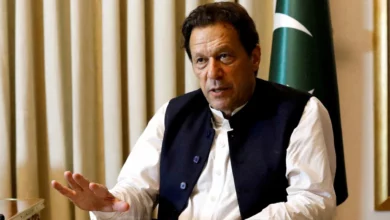An Egyptian government audit officer, who recently claimed that his superiors had attempted to cover up incidents of corruption, was interrogated on Monday by the Administrative Prosecution Office for allegedly exposing official secrets and speaking to the media.
Ahmed al-Sandiyouni had accused Gawdat al-Malt, the director of Egypt's Central Auditing Organization (CAO), of turning a blind eye to the importation of thousands of tons of carcinogenic wheat over the last decade, most of it from Russia.
Established in 1942, the CAO is the only government institution with full powers of oversight over public funds. Critics argue that it was marginalized under former President Hosni Mubarak.
According to an existing law regulating the CAO, it is illegal for any employee to disclose the information held by the body, even after their retirement.
“I was interrogated today because I spoke to the press about corruption within the CAO. Simply, Malt is one of the former regime's figures and he played a major role in hindering any move to investigate the controversy over imported wheat,” Sandiyouni told Al-Masry Al-Youm.
The investigation of Sandiyouni has been criticized by rights organizations as a threat to freedom of expression.
“We believe that this corruption case, if proven true, should not be perceived as revealing work secrets,” said the Cairo-based Arabic Network for Human Rights Information (ANHRI) in a statement.
“The detection of corruption is not a charge that a public officer should be under investigation for. It was better to encourage each employee to disclose all the facts of any corruption he has witnessed,” added the statement.
Sandiyouni and some of his colleagues at the CAO have formed a group called “Auditors against Corruption”, through which they are calling for the removal of Malt, the opening of corruption cases to the public, and a complete overhaul of the CAO.
In the last ten years, media reports have suggested that Egypt, the world's largest wheat importer, had imported low-quality wheat contaminated with carcinogenic substances. In 2007, a parliamentary committee called for the government to immediately dispose of some 5000 tons of contaminated Russian wheat. The government failed to abide by the suggestion.
“What al-Malt has done is to hinder those moves by the Parliament. In March 2009, he [al-Malt] falsely told the People's Assembly that there is no contaminated wheat in Egypt,” claimed Sandiyouni.
He also alleged that Malt, who has been in office since 1999, had fabricated reports to suggest that imported Russian wheat was free of carcinogenic subtances.
Anti-corruption organizations have long criticized Egyptian authorities for criminalizing “whistleblowers” and providing legal impunity for senior public servants.
In an unprecedented move, a Cairo court ruled last week that revealing acts of misconduct within government bodies is legal since it is a part of freedom of expression.




